#local zoo
Text
A.
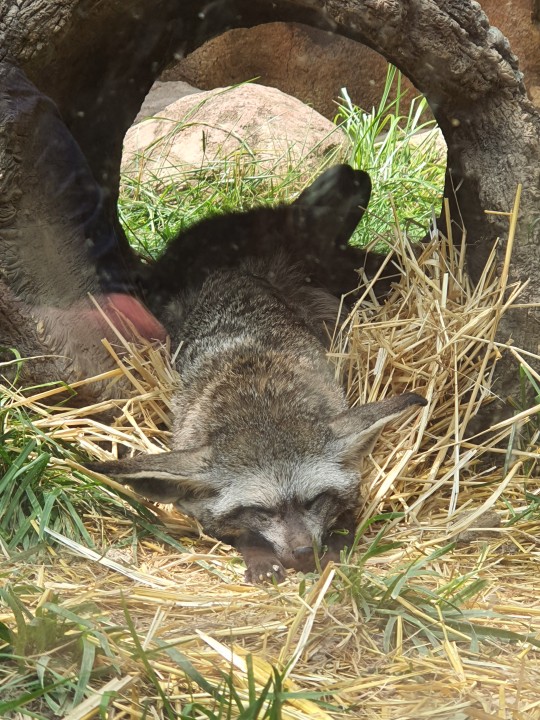
B.
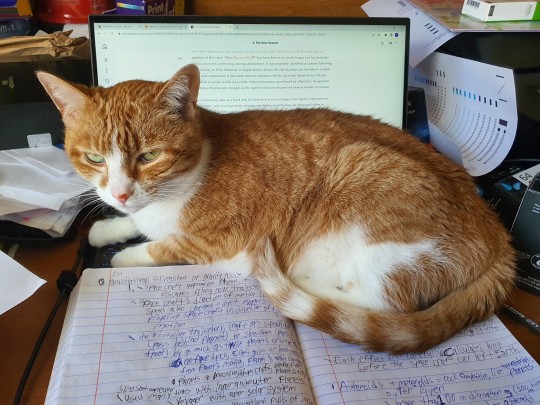
C.
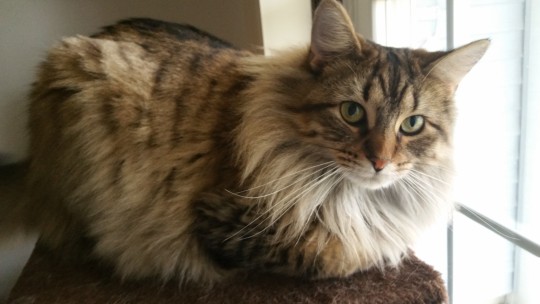
#poll#tumblr polls#cat#fox#cuteness#so cute#cute cat near me#cute#animal lover#cute animals#photograph#photography#zoo#local zoo#peaches#my princess peaches#xena#xena warrior princess#kitty#kitties#adorable#awwww adorable#cute kitty#cute cats#also cute#yes#i am not organized#my precious#my babies#the other kitty is sleeping
4 notes
·
View notes
Photo
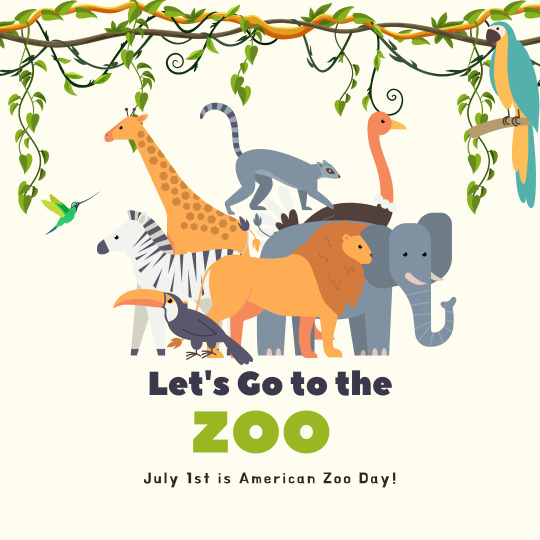
Take today to visit your local zoo!
#zoo#zoo day#american zoo day#zoo animals#lets go to the zoo#animals#local zoo#dorr township library
1 note
·
View note
Text
Inspired by this post.
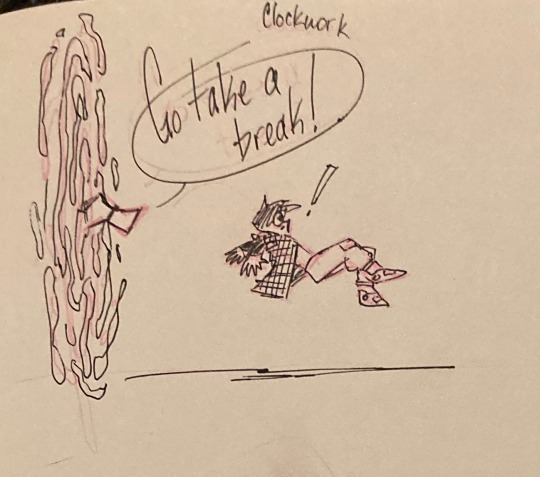
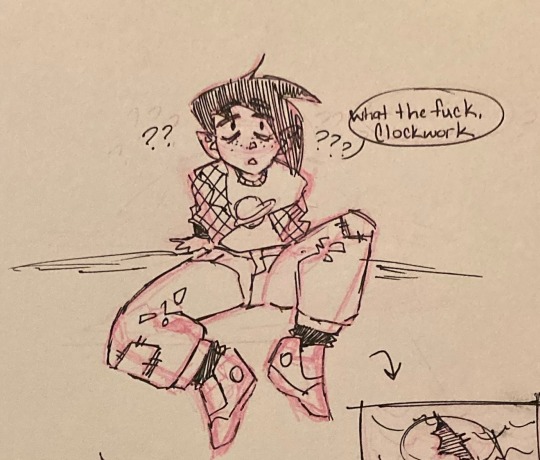
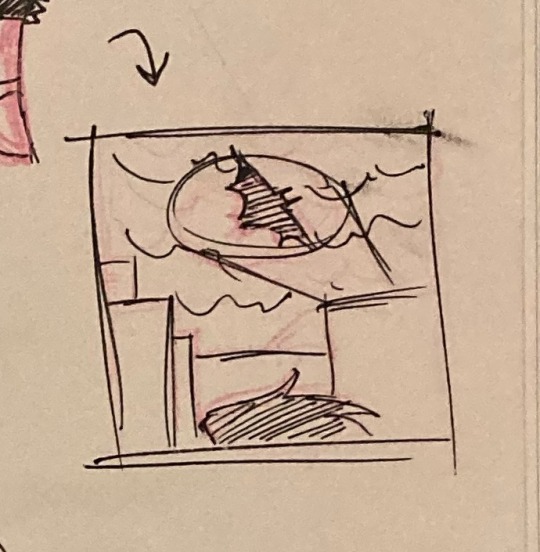
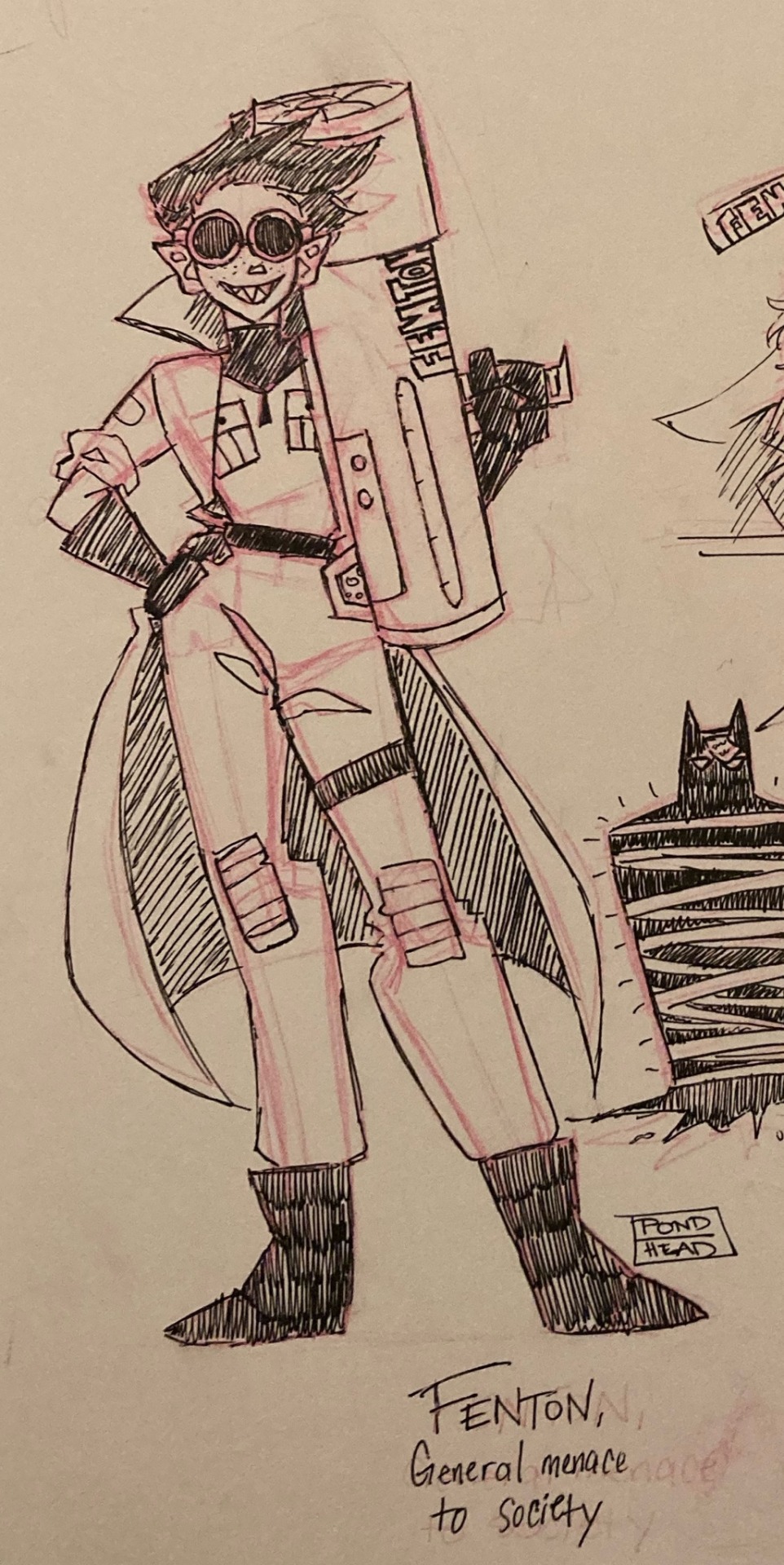
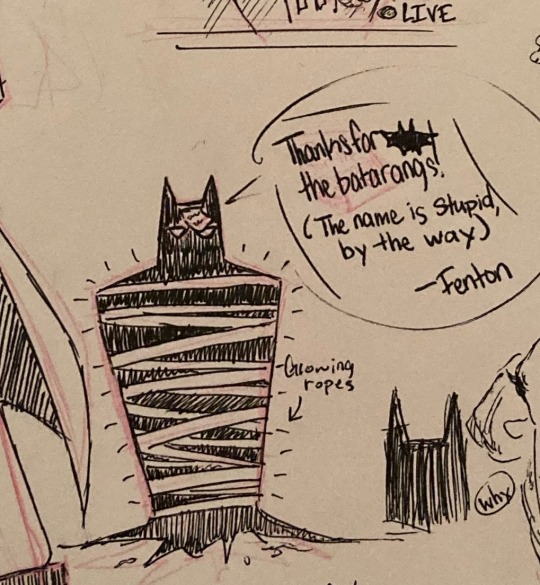

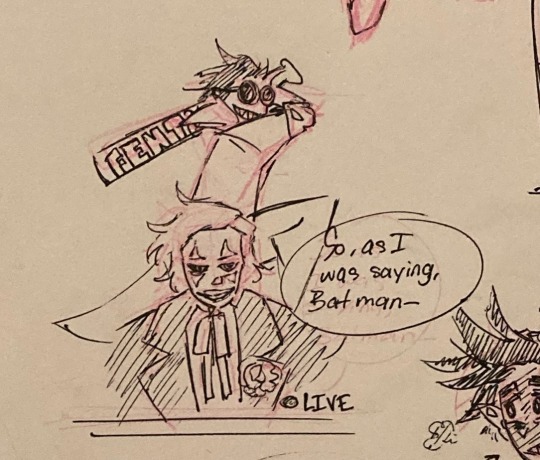
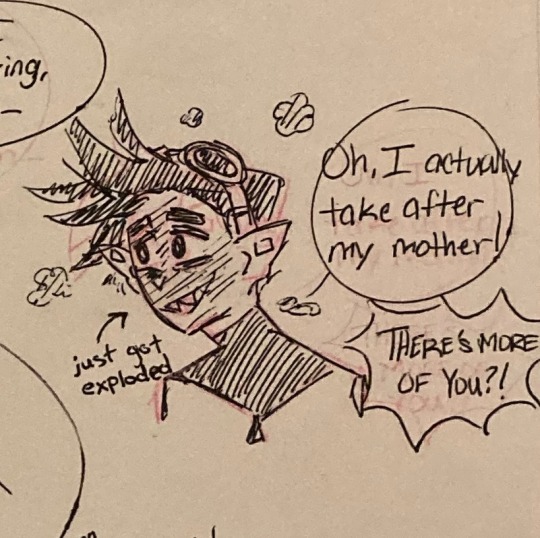

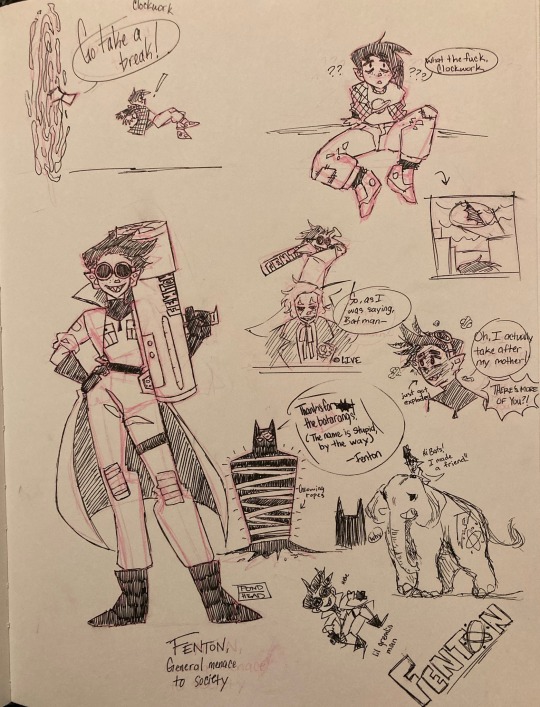
#danny phantom#dp x dc#danny fenton#mad scientist danny#his suit is a mix of Jack and Maddie’s suits#with a lab coat thrown on top#he 100% smacks joker with a baseball bat on live television#and loves to kidnap zoo animals#Batman cannot find mention of the Fentons anywhere#it is driving the Justice league mad#Superman: stop right there kid!#Danny: suck my a s s#Wonder Woman: why do you keep stealing paintbrushes from the local art centers#Danny: I’m a bad bitch you can’t kill me!#Batman: hang on I speak fluent Teen#Batman: …you finna catch these hands#Batman: don’t @ me when you’re six feet under#Danny: I Am Uncomfortable With The Energy We’ve Created In The Studio Today#when the fight is over he’s just like#aight imma head out#it was fun playing#see y’all next time#and just#rips reality a new one#the Justice league can hear someone from the other side talking#as Fenton goes through the portal#‘did you have a good time? i made cookies come tell me about your day’#the portal always closes before anyone can get through#until one day it stays open and they all make a collective decision to go through#clockwork knows exactly what he’s doing
5K notes
·
View notes
Text
Happy National Zookeeper Week!
I’ll admit, I’m feeling a little spicy about it this year (well, every year) because zoos use the celebration for lots of positive facility PR, yet staff don’t often get the support and respect that is claimed in those posts.
So I want to share this great article written by a zoo industry consulting group last year looking at the reality of what happens when a workforce ends up conflicted between their passion (zoos and animals) and pragmatism (paying rent, existing in a capitalist society). They assessed AZA compensation rates by region against things such as a living wage and rental rates in the area. (All text formatting within quotes, such as bold and italics, is original to the article text.)
I cannot give the Canopy Group enough support for the way they framed this research:
“By observing the economics of keeper compensation, it’s no secret that keepers land on the lower end of the wage spectrum. Like all other wages and salaries, the market value of keeper compensation is driven by several economic factors – including the size of the labor pool, the rigor and danger of the work, the technical ability required, and the educational requirements. However, there is one factor that artificially lowers the market value of keeper compensation more than any other: passion.
In this article, we’ll take a look at why passion lowers the market value of animal care worker wages. More importantly, we’ll consider many factors that have emerged in recent years that are making people reevaluate the value of following their passion – a trend contributing to The Great Resignation, especially as it applies to zoos, aquariums, and similar organizations. (…)
The argument here is passion versus pragmatism: the unknown versus the sure thing. It is a decision all zookeepers and animal care technicians have made. Working with animals is immensely rewarding, but this passion is also very popular. This, historically, has meant that the keeper candidate pool is very large. Therefore, if the wage is livable and working conditions are reasonable, the pool should remain large. In a very real sense, a passion for animals drives down the market value of keeper compensation. Anyone who has been through an Economics 101 course will recognize this as a fundamental market principle: supply vs. demand.
However, many zoos and aquariums are having a more difficult time filling positions than normal and have started to see higher turnover rates in recent years. This begs the question – is the current keeper wage too low?”
Their findings?
Here’s their graph of “the median wage of keepers from organizations in different AZA-defined regions” from an AZA survey done in 2021. (Median is the type of average that looks at the middle of a data set’s range).
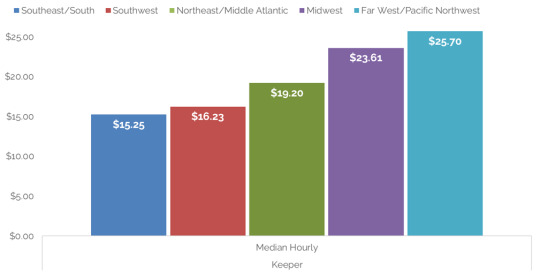
The median wage for AZA keepers in the South/Southeast was just over $15/hr at the low end, and the median wage for AZA keepers in the Far West / PNW was a little under $26/hr. That’s pretty dang low everywhere, especially when you factor in the increased cost of living in places like the West Coast. Also consider that looking at the median wage doesn’t mean this reflects just entry-level compensation - this data indicates the the compensation middle for all keeper positions, including people who have built their careers as keepers in those places long-term.
Then, they compared those wages to the “living wage” in each region - which they defined as “a calculation of what it takes to live in a particular area, without any other income. A living wage calculation takes into consideration how many earners are in a household, how many children are being supported, etc. The living wage includes the costs of all the basic items a household needs to be self-sufficient.”
“If you receive a wage for a job that is below the living wage, then you are essentially taking a negative net income. This is unsustainable for the long term, and essentially defines where wages start to exploit passion.”
Here’s a figure they provided using the MIT Living Wage Calculator showing the average living wage for each of the AZA regions. The chart on the left shows the living wage for a single person with no kids; the second, for two parents with two incomes and one child to support.
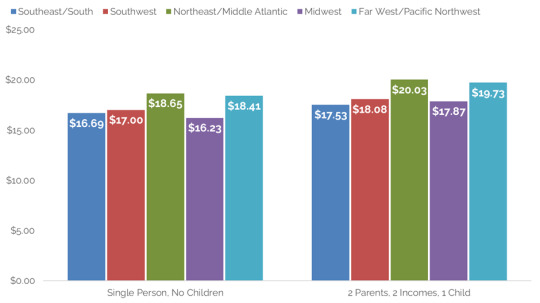
“By comparing the two graphs [to the earlier graph of the AZA median compensation rates], we find that median wages in the Southeast/South and Southwest regions are lower than the living wage for each household configuration in those regions. In other words, if you are a single person household or part of a two-income household raising 1 child in the South, a starting keeper salary will likely leave you with a negative net income. While many people work at this level, it increases the risk of accumulating debt, lowers a person’s ability to afford a home, set a much later retirement age, and can lead to many other negative, long-term effects.”
Big yikes, right?
Next, they looked at living wage vs. compensation for single parents.
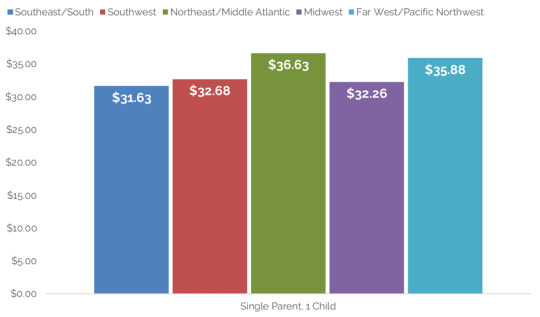
“The single-parent living wage exceeds the average keeper wage in all AZA regions. In fact, the living wage required as a single parent is double the average AZA keeper wage in some regions.”
And then they did housing, specifically, being able to purchase a home.
“In many places, even a two-income household at an average keeper salary would not purchase a mid-level home. This means that keepers have to wait far longer than their peers to purchase a home. While paying rent in the meantime, this rent will account for a larger portion of their income than their peers. All in, these effects can set hopeful homeowners back years or decades.”
Canopy’s conclusion was something anyone involved in the field knew was coming.
“Companies like Chipotle, McDonalds, Best Buy, FedEx, Home Depot, Publix, and Walmart are all offering similar starting wages near starting keeper wages – plus many fringe benefits (like tuition reimbursement) and ample advancement opportunities. Many potential keepers in younger generations are putting their passion on the shelf so they can meet basic standard-of-living concerns.
To attract and retain quality candidates, an organization must consider the journey each new employee would have to make over their career. If the journey is fraught with massive debt, decreased disposable income, and limited career opportunities, then you are limiting your potential candidate pool to the small group of people who have decided that following their passion is worth significant lifelong financial hardship. There are many potential candidates out there willing to sacrifice and arm and leg for animals and conservation, but they wouldn’t dare jeopardize the financial future of their dependents and families.”
This is something I’ve heard about for years, and seen first hand. The low average wage at zoological facilities has been damaging their ability to hire and retain skilled staff for as long as I’ve been involved in the industry. I know so many zookeepers who still have roommates into their 30’s, or work multiple jobs, just to be able to make ends meet.
There’s a mythology about zookeeping jobs, a narrative that seeps into the field and actively exploits people’s passion for the job: it tells people that they’re so lucky to be able to work with these rare and cool animals; that they’re greedy and ungrateful when they ask for more compensation because they’re privileged to get to have the job at all. It says that most people would give anything to have these opportunities, so current zookeepers are interchangable and easily replaceable. Ask for too much? Push for a living wage? There’s always someone willing to take your spot. Not all facilities perpetuate this mentality - some places do treat their staff well without intentionally manipulating them to stay them in unsustainable jobs, and there can be legitimate financial reasons that limit staff compensation (mostly at smaller facilities, afaik) - but it’s a reality in the field.
For a long time, this type of mentality towards staff was sustainable. There really were always more people wanting to work in the field. But now, after three years of pandemic stressors and inflation, it’s starting to be a problem. A lot of staff left during the last few years, and facilities are having a really hard time hiring people and retaining them for any duration. I think a large part of that is low compensation rates. People are prioritizing long-term financial stability and recognizing when their passion is being exploited.
When I first started on tumblr back in 2011, there was a whole group of us within the United States who were baby zookeepers or volunteering as industry hopefuls. We all became friends, and I’ve stayed in touch with, or at least aware of, most of them as their careers progressed. Of the 10-15 or so people in that cohort? I can think of three who are still employed in the zoo industry. Everyone else has moved on into other fields - often with great grief over the loss - because of the extreme emotional labor, the physical exhaustion, and the lack of appropriate compensation.
But I guess that annual pizza party, being featured on social media, and maybe getting additional snacks all week makes up for it all?
#national zookeeper week#zoo industry#living wage#compensation#please support your local zookeeper#AZA accreditation#AZA zoos#zoos
554 notes
·
View notes
Text
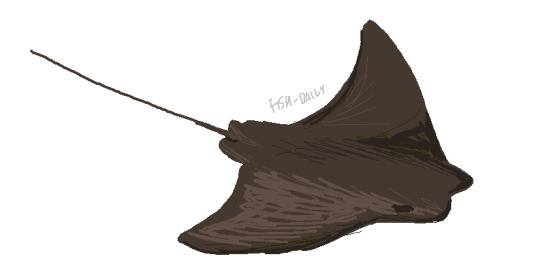
fish 272 - cownose ray
for the fish-uary day 9 prompt - ray!
see the prompt list here
#fish#fish daily#cownose ray#ray#drawing#fishuary2024#i fucking love cownose rays. i miss when my local zoo had a petting tank
145 notes
·
View notes
Text
I feel like none of you have seen a vulture in real life. Too many of you would stay at your table if one was 30 feet away.
#dimension 20#d20#vulture dimension#fhjy#adventuring party#please visit your local AAZA accredited zoo#i need you all to understand that as someone who used to work for a zoo that vultures would attack you for food
26 notes
·
View notes
Text
maybe I should start posting The Outsiders headcanons and shit 😭
#this is satire#I’m concussed#pls call your local firemen#william zabka as a foreman???#BRO#I am WEAK for Elizabeth Shue#like#MEOWJWIEBEIEHEJ#GODDAMN#ZOO WEE MAMA#but like anyways ..#I might do it like fr#yay#frank della rocca#dallas winston#dallas winston x reader#the outsiders#matt dillon#ralph macchio#two bit mathews#I’m literally two-bit mathews if he was a little bitch#modern day two bit??#canon???#rebranding as two bit#I come without shame#the outsiders x reader#steve randle#darry curtis#ponyboy curtis#sodapop curtis
37 notes
·
View notes
Text
the inherent obsessive urge to list everything + over 10,000 species of birds + nearly thirty years of not having a way to document what I've seen + history of traveling to a total of twelve countries over the course of my life, many of them for biological research/educational purposes = seriously considering googling 'list of birds' and just going through it until I think I've got them all
#how long can it take? <- smash cut to me sleep-deprived and trembling in the morning#having gotten through 0.6% of the warblers#I jest. I don't really know birds that well. I'm just going to skim the local lists and the big notable onesin case I've forgotten somethin#and I have to remind myself it's not about zoo animals! it's not about every single bird you have ever laid EYES on. it's about wild animal#and it's for fun. chill out. it's about appreciating the encounters and the individuals#cor.txt
9 notes
·
View notes
Text
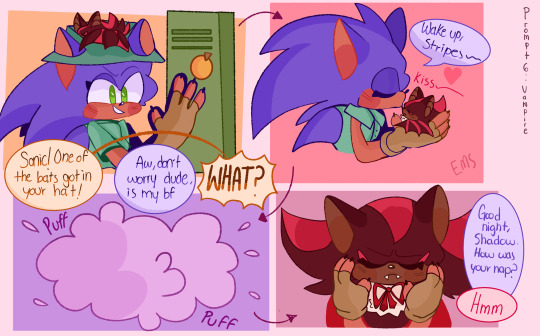
Day 6: Vampire
#sonic#sonic the hedgehog#sonic fanart#sth#🌈✨ems#shadow the hedgehog#sonic au#sonadow#sonadowtober#sonic is volunteer at the local zoo and takes care of bats also he has a vampire bc who likes to sleep in his hat#shadow growls to other bats when they get to close to sonic#he’s jealous#tails is baffled btw
304 notes
·
View notes
Note
WHAT is your favorite species of SALAMANDER?
im SO basic abt this one but eastern tiger salamander and spotted salamanders are. my faves. simply bc they're native to the area so they're what i grew up with so like. they're THE salamanders to me!! but also same w the red-backed salamander, who is just a Little Guy. littlest guy ever in fact xoxo
there's a LOT of pretty species of salamanders/newts/sirens/etc, but i just. gotta go w the ones i grew up with, you know? my buddies!
#go to zoos and see the local friends! bitty guys!#OH fun fact one of my favourite photos ever is a salamander swallowing a worm and it's the header of my writing resource (for myself) blog#OH i did forget to mention that i like fire salamanders too even if they're not local to here xoxo they're cuties
10 notes
·
View notes
Note
so what would tiger claw have done if he managed to escape?
Tigerclaw would've escaped deep into the town, farther than... the scope of certain influences. The cats in that area have only heard of the Clans in third or fourthhand experiences, so if he lived cautiously, he could forge a new identity among the strays and friendly kittypets.
Except they're not a Clan, so what good are they as friends?
...Scrappy, kindhearted kittypets do have a habit of worming their way into his heart, though.
#hed never tell anyone his name tho#theres no honor in giving oneself a name#and the kittypets and strays dont know what to make of him#some names strike a sour chord with him#namely those gifted by the kittypet born in the local zoo#one name suggestion would strike the audience in dramatic irony#lynx#editor#tigerclaw#burning hearts ask#queue
22 notes
·
View notes
Text
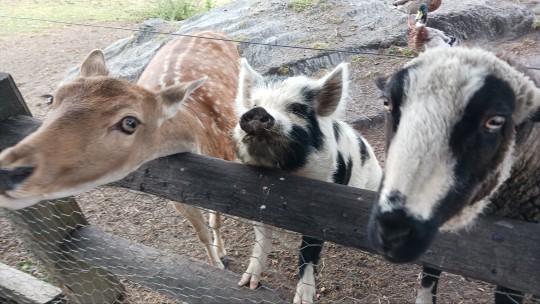
make a point to go the petting zoo while im home on holiday bc I am a goddamn adult
#ok its not a petting zoo#its the farm animal rehabilitation section of the local veterinary clinic#where you can pay $3 for a bag of pellets#to brush and feed and pet the animals while they are there#but petting zoo sounded better lol#that deer tried to eat my jacket
7 notes
·
View notes
Note
Puzzler! Got an opinion on elephantes?
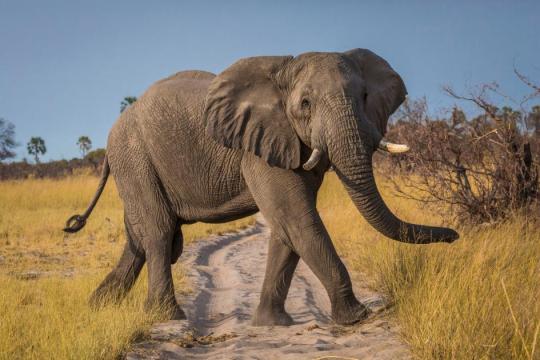
Get A Load !
#anonymous puzzler answers#sebwritesstories#as a kid i would go to my local-ish zoo and draw/paint the elephants it was great#they got good Shapes and they don't run around super fast all the time Great for drawing practice#ALSO the ways that they form family groups and socialize and mourn and carry out Traditions and such is so cool!!! what an Animal
17 notes
·
View notes
Note
I saw an article a little while ago about a child that fell into a rhino enclosure . The child was ok but apparently the rhino touched the child with its snout in supposedly a non threatening manner. But according to the article the rhino wasn't going to be punished for touching the child . Why would the rhino get punished for it if it wasn't threating the child ? I read the article once but as far as I can tell the snout touch was non threatening to the child.
I think you might be talking about the incident at the Brevard Zoo in 2019 where a child got hurt during a rhino encounter behind the scenes? She appears to have stumbled backwards through the bollards (vertical steel fencing) and into the enclosure.
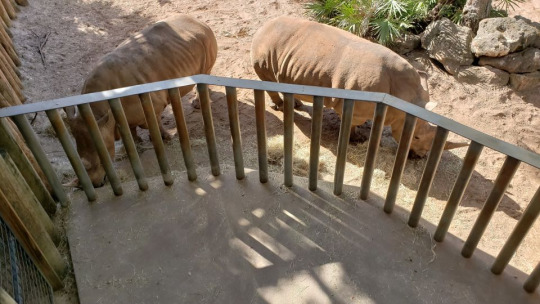
In that case, the kid did actually get hurt: it sounds like they got spooked when her father reached through to pull her out, and pushed against the kid with their noses, and she was injured because a 21 month old kiddo is very squishy compared to a battled armor tank of a mammal. The news reports say she did suffer “a lacerated liver and bruised lung” with bruising on “her chest, back, abdomen and head.” It’s really important to note that they didn’t use their horns here, according to the zoo PR - but their heads are massive, and anyone would be hurt getting stuck between that much weight and metal fencing.
I think because of some rather unsavory historical incidents, and a misunderstanding of public health measures around rabies, people have come to assume that an exotic animal who hurts a human will be euthanized as punishment. The good news is, that’s not true! Zoos don’t put down their animals just because someone got hurt. They don’t punish wild animals for being wild.
#cw injury#cw child injury#cw animal death#cw dead animal#the last two cws are for the unsavory incident link#rhinos#zoos#sometimes euthanasia is required for rabies testing by local authorities if its a mammal
331 notes
·
View notes
Note
Ok now you’ve got me hooked, how in the world did you find yourself hunted by coyotes (and a bear???) when you were a kid?
Technically the bear was not hunting me and also I was an adult. If the bear had been interested in eating me I would be dead right now. The bear was minding its own goddamn business when a small yappy dog and then moments later a terrified human showed up. It was content to let the human (me) pick up the small yappy dog and back slowly away and then, presumably, it continued its bear business. its bearsiness. I have nothing but respect for that very tolerant bear who nonetheless left me with a still-lingering phobia of bears.
the COYOTES on the other hand. so to understand this you must know that I grew up in rural alabama, and i had a singular best friend, whose family was very rich and owned a mansion far FAR FAR out into the countryside where there was nothing around but other mansions that were spread extremely far apart from each other on massive lots filled with nothing. I cannot emphasize enough how much nothing there was out there. You could walk for an hour and it would still be nothing. So obviously, the wildlife outnumbered the humans by a huge margin.
This family had a tradition which I didn't think much of at the time, which was that they would go for extremely late night walks. Like, ten pm. It was a family event and they'd all grab flashlights and off we would go for a casual 30 minute stroll around the nothing. As family traditions go it was pretty good. It was so traditional that at one point, my friend and I elected to go by ourselves, just us and their extremely massive dog, Karma. (Karma was a sweetheart and, it's important to note, kind of a wuss. I think she was a mutt but I also think she had some great dane in her because she had that general huge-but-gangly vibe)
So off we went, maybe both 12 or 13 years of age, just us and a dog about the same size as us. Into the nothing, thinking nothing of it!
And then, maybe ten minutes away from the house, we began to hear the coyotes.
This in and of itself was nothing suuuuuper uncommon, you would hear them in the distance every now and then, yipping away at each other. I never thought much more of it than you would of hearing a fox scream in the night; a little unnerving but still part of the normal soundscape of the area. That, however, was when we were four people with flashlights, including two large adults, and one large dog. In this case, we were two very small children with one flashlight and one dog that I don't think was even on a leash at the time.
And the yips and barks did not stay in the distance. They started getting closer to us from behind. And then they started not just being behind us. They were still far out, far enough that we wouldn't be able to shine a light on them or pinpoint where they were, but they were not as far as one would like. And Karma was growling, which she never did. And we were suddenly aware that we were two small children in the middle of nowhere with nothing on us except one dog who was large but also had the energy of a perpetually just-divorced 42 year old man.
We had started walking back towards the mansion basically as soon as we'd heard the coyotes getting closer, neither of us being COMPLETELY brain dead, and we both had a very tense walk conversing loudly about how we were absolutely about to die, because we thought being loud might help but were realistic about our prospects.
They followed us until we were about five minutes out from the house where more buildings were, and then fucked off. We ran the rest of the way home. We did not go out at night alone for walks anymore after that.
#solitaretalk#it's probably good for you as a child to be briefly hunted by a pack of coyotes#between that and the time the cougar escaped from the local zoo and was spotted in our area i developed a very deep respect for nature#and how much it could and would absolutely kill and eat me
7 notes
·
View notes
Photo
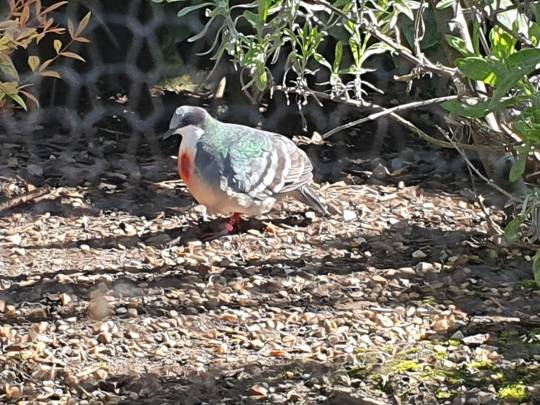

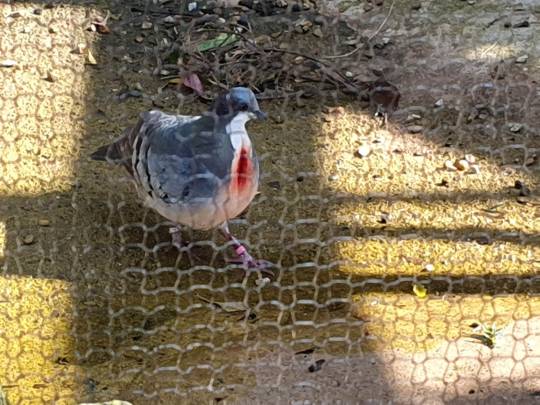
I went to a nearby zoo and ended up meeting a celebrity
#I was literally so happy when I saw that one of my local zoo's had a#luzon bleeding heart dove#I was like OMG ANGHEL#personal#everyone who pass looked at me strangely as I stood at this aviary screaming like a fangirl#but come on! It's the ANGHEL#should I tag this as hatoful??#eh what the hell#hatoful boyfriend#anghel higure#I met him in person :D#they had quails too but they were the wrong species but they did have Javen sparrows#but I forgot to take a picture of them ^^'#10/10 experience#who cares about wolves and red pandas when you can meet this special guy
40 notes
·
View notes